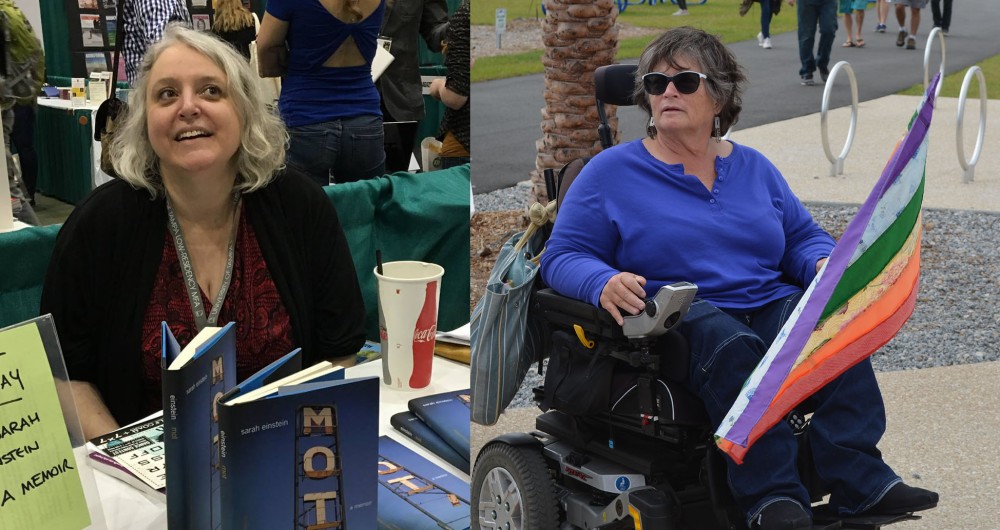From the Editors:
On November ninth 2016, we woke up—Sandra and Sarah, but also most of the older queerfolk in the country—not to a world we didn’t know, but to one we remembered well and had hoped was gone for good. If younger people felt that they were in terra incognita, we were back on the well-trod ground.
We remembered surreptitiously flipping through a library’s card catalog to search out who we were and finding only references to “the male homosexual” or “sexuality, aberrant” and no listings at all for gender. We had strained to hear our parents lowered voices talk about “those” women who lived together in a house at the end of the block. We remembered the Reagan era when access to women’s, to all people’s, healthcare was curtailed, people with disabilities lost access to key services, and the AIDS crisis emerged into the plague years, when the nation debated the possibility that AIDS was plague sent by God to kill us while the Federal Government refused to fund the research needed to save us.
After the election, we are back to the possibility of lost jobs, a lack of access to housing, unequal recognition of our relationships, and the constant danger of violence against us. We knew instinctively that it was time to dust off the old coping mechanisms and we didn’t want to do it alone. So we sent out a call to those who had survived. We wanted help to recreate the edifices of care and activism that we once constructed for ourselves and then perhaps abandoned because they were no longer needed. It was time to reach back and get them.
We, the editors, wanted submissions that shared the experiences of us older queers, the successes we’d had, the mistakes we made, the voices of those who were left out, and the ways we thrived. Mostly we, the editors, wanted to be some part of pushing back against the bigotry of all kinds that has reentered the public conversation, unrestrained.
Writings poured in. Every day we read about strategies of resistance. Teenagers of the fifties sent to psychiatric wards or interrogated by political witch hunters wrote of surviving by lying and running away. The ones of us who came to activism through the anti-Vietnam War and Civil Rights movements of the sixties have carried that sense of justice forward. We received descriptions of the urgent creation of compensatory networks of care in the 80’s and 90’s along with poetry that both mourns and honors the lives lost. And the way so many of us threw ourselves out of the closet, set the course to where the younger members of our community have come of age in a world with LGBTQIA student organizations operating openly on campuses, marriage equality in at least some states and the inevitability that it would become the law of the land, and pride parades so mainstream they now had corporate sponsors.
Many contributors, no matter what era they came out in, wrote of their debt to their elders—the ones who showed them all the possibilities of a new, whole life, who sheltered them, who fed them, who saved them. We are so glad to continue this tradition and add these strategies of survival, these celebrations of our lives to the already formidable power of the younger generations of queer folk as we gather together in resistance.
— Sandra Gail Lambert and Sarah Einstein, Editors

that intro could be a poster. insights and eloquence, inspiration to action.
LikeLike